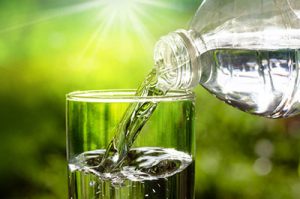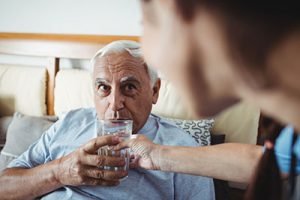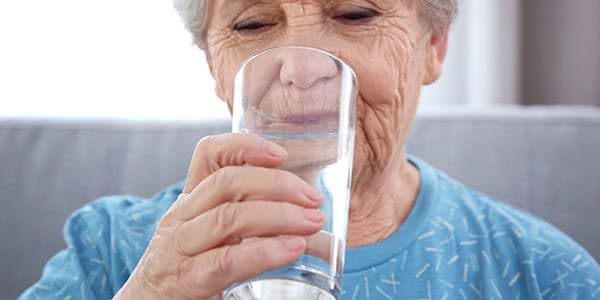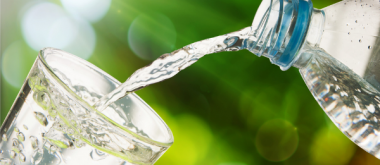
Aging and Fluid Regulation
In the book Practice of Geriatrics, R.D. Lindeman describes how an individual’s body weight is primarily made up of water and electrolytes. The chemicals prevalent in electrolytes are sodium, potassium and chloride and these are regulated throughout an individual’s life with the kidneys. However, as one ages, the kidney’s capacity reduces its ability to process and regulate these electrolytes as the kidney’s inability to conserve sodium decreases. In addition, elderly people develop an inability to concentrate their urine and also lose their thirst motivation.
These three factors make elderly individuals more susceptible to dehydration, which can lead to a host of other symptoms including muscle weakness, cramps, pain and exacerbation of other illnesses.
Hormonal Changes in Women
As women approach menopause, they become more susceptible to dehydration as well due to the fluctuating hormones in their system. In the study Hormonal Changes During Menopause and the Impact on Fluid Regulation, Nina S. Stachenfeld, Ph.D, describes how estrogen and progesterone can impact body fluid regulation, cardiovascular function and blood pressure responses to sodium loads. Elderly women remain at risk of dehydration especially since they replenish fluids at a slower rate than other adults.
Maintaining your Hydration Levels

It is easy to keep track of your fluid intake; there are many ways to monitor your progress. You can either use a traditional journal and keep a food and drink log, making sure you meet your caloric and fluid needs or you can install an app on your mobile device or computer to make things easy. Various applications from many innovative tech companies such as Apple and Google Play are available to help calculate how much hydration you will need, depending on your age, weight and activity level. Then these apps will send you a reminder daily throughout the day to help you keep on track with your hydration goal, as well as track your progress through time.
If you are worried about the increasing toll on your body as you age, staying hydrated can help you fight the effects of aging. There are so many ailments to be worried about, from the physical to the mental toll on your body and mind. In addition to regular exercise, monitoring your diet and making sure to eat fruits and vegetables and maintaining your nutrition, remembering to drink fluids regularly will significantly decrease the negative effects of aging, especially since elderly people are more prone to dehydration.





